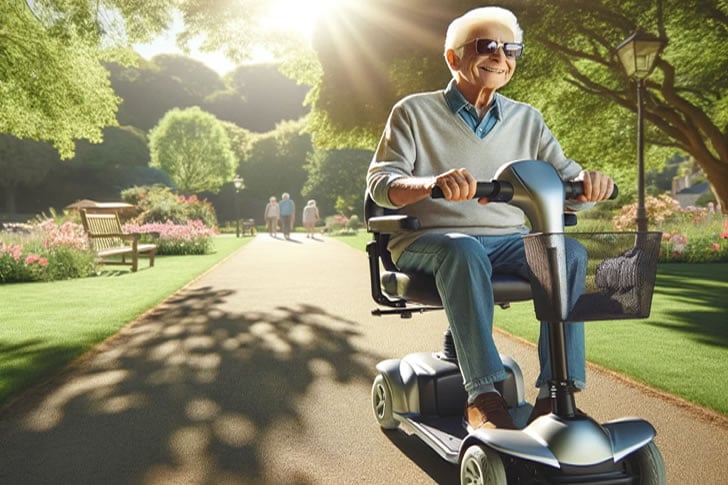Understanding how Medicare assists seniors in accessing mobility scooters can ensure independence and safety. This guide offers advice and tips on navigating the process.

Mobility scooters are electric-powered devices designed to help individuals with limited mobility move around more affordablely. They typically come with a seat over three to four wheels, a flat area for the feet, and handlebars or a steering wheel for maneuverability.
For seniors, mobility scooters are crucial for maintaining independence and quality of life. They allow older adults to perform daily tasks, participate in social activities, and access areas they otherwise might find challenging. This contributes to both physical and mental well-being.
Medicare is a federal health insurance program primarily for individuals aged 65 and older, but it also covers certain younger people with disabilities.
There are two main parts of Medicare that could cover mobility scooters:-
To qualify for Medicare coverage, a doctor must prescribe the mobility scooter. You'll need to demonstrate a medical need for the scooter, confirming that it's necessary for you to move around within your home.
You must receive the scooter from a Medicare-enrolled supplier. Both your doctor and the supplier must submit relevant paperwork and authorization forms to Medicare.
Medicare will review the documentation to determine if you qualify. This process can take time, so it's advisable to start early.
Many suppliers offer trial periods or rental options for you to test different models and find the one that suits you top.
If Medicare approves your scooter, you generally pay 20% of the Medicare-approved amount, and the Part B deductible applies.
If you have Medigap or another supplementary insurance plan, it may cover additional costs not absorbed by Medicare.
Periodically, have a professional examine your scooter to ensure it remains in excellent working condition.
Check with local senior centers and community organizations for programs that could help with the cost and upkeep of mobility scooters.
Join online communities where seniors discuss their experiences and recommendations related to mobility scooters and Medicare.
Understanding how Medicare can assist seniors in acquiring a mobility scooter is essential for maintaining independence and improving the quality of life. By following the steps outlined and considering the given tips, you can navigate the process more efficiently and choose the scooter that top suits your needs.